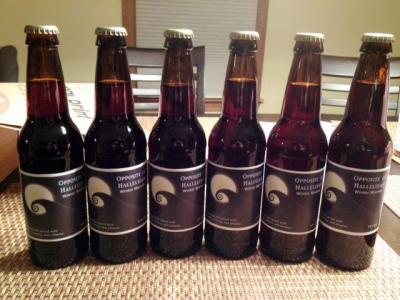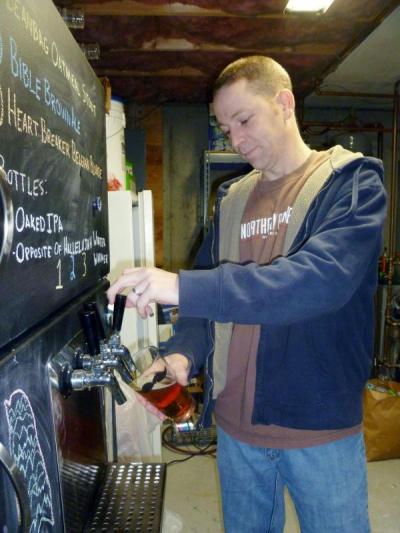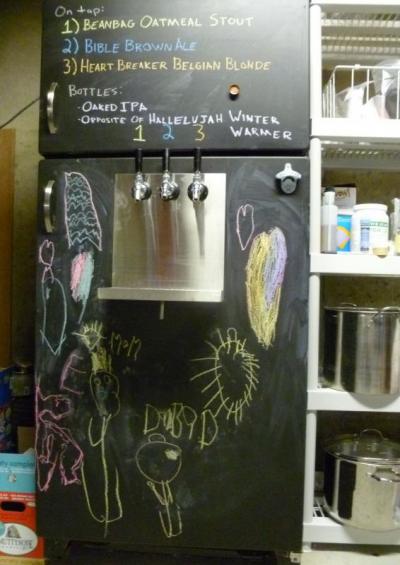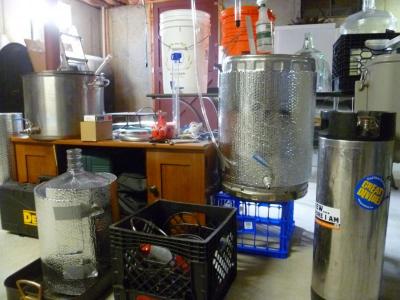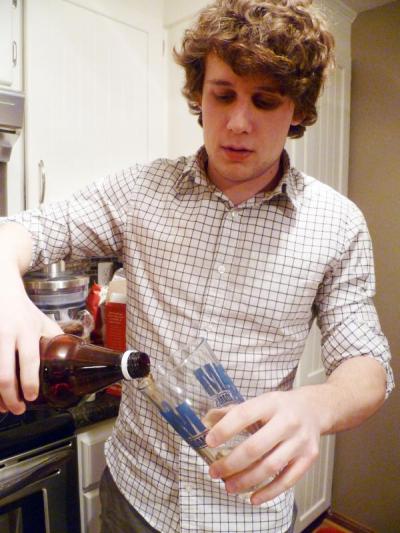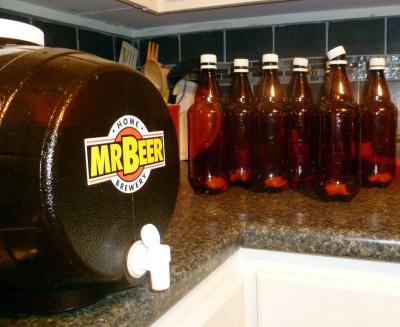Locals craft, share homemade beer
Beer has a funny way of introducing people to new things.
Case in point?
Marion resident Jesse Ferguson, a financial analyst by day and a homebrewer by night. Or afternoons, if the weather's nice.
Ferguson started brewing his own beer six years ago after receiving a small do-it-yourself kit for Christmas. Since then, he’s acquired top-notch kettles, turned an old fridge into a three-tap “kegerator” and brewed up around 35 different types of beer.
After starting out brewing smaller batches in the kitchen stove, Ferguson was “encouraged” by his wife, Karen, to move his laboratory to the basement and do most of the cooking outdoors. As is the case with hombrewing, the smell of cooking malt, hops and grain can get a little pungent.
“When I started out, there were a lot of challenges,” Ferguson says. “I wasn’t quite sure what I was doing. Luckily, I found a group of brewers in the area, and they’ve helped me along the way.”
That group is the SouthCoast Homebrewers Association, which has close to 50 members. Ferguson says everyone meets around once a month to have socials or tasting events, as well as brewing challenges—everyone uses the same recipe but gets to add a few tweaks.
Karen, though not a beer connoisseur, says the group’s events are a great way to meet new people and share war stories.
Ferguson says getting into brewing is an investment, with recipe kits going for $30 and up, plus the cost of kettles, propane burners (as opposed to the stove) and a keg system. He started out pouring the pre-aged beer into recycled bottles (which involves getting the bottles as well as buying caps and a capper), but the system speeds up the carbonation process and reduces the amount of patience.
It usually takes about a month for the beer (depending on the recipe) to reach its full, drinkable potential.
“Patience is a very big deal in homebrewing,” Ferguson says. “But the end result is worth it. It’s your own beer, it’s unique, and when you get that first, unique taste, there’s no way to describe it.”
Speaking of patience: His next batch will be an Oktoberfest-style beer, which requires nine months of aging and fermenting—or the process of carbohydrates turning to alcohol.
“I’ve got a long ‘to-do’ list of beers to make,” he says. “Much longer than I really have time for.”
Mattapoisett resident Collin Spink, a recent UMass Amherst grad, has scaled back his brewing operation since returning home.
“My friends and I had a big setup in college,” he says. “We called our place the ‘Spaulding House Brewery’ and would challenge each other and share the results. We even sold some batches for fundraisers.”
Though he now uses a two-gallon fermenter (as opposed to more standard five to ten gallon containers) and cooks on the stove, Spink says he still has fun playing with recipes and experimenting a bit.
His parents don’t mind it, either. Robert, Spink’s dad, was the source of his homebrew inspiration.
“I grew up watching him make beer,” Collin says. “And as I got older, I thought, ‘What could be manlier than making your own beer?’”
Robert bought Collin the smaller kit for Christmas.
“The smaller batches are good,” he says. “You can make more beer. The result is always the best part.”
Spink and his friends do have their eyes on a much bigger prize: starting their own brewhouse and establishing a non-profit that uses portions of the brew sales for building clean wells in third-world countries. One idea for the non-profit’s name is “Drink for a Drink.”
“What’s easier than buying beer for a good cause?” he says.
Even if this so-called “pipe dream” doesn’t become a reality, Spink says he’ll always be brewing his own beer.
“You can get creative,” he says. “No two beers will be alike. Just knowing it’s your own beer and having the ability to tweak things makes it so much better.”



